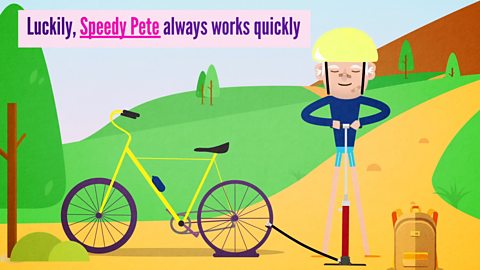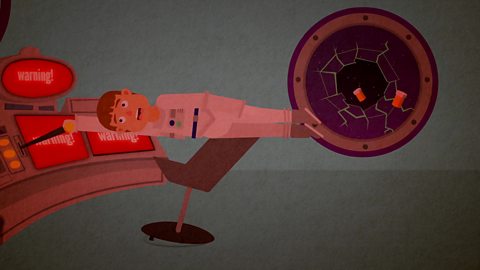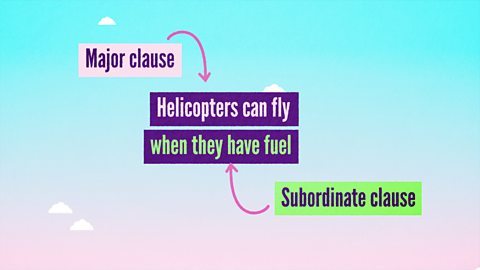Modal Verbs…
Modal verbs are words that change the meaning of other verbs.
We use them to express if something is certain, likely, possible or impossible.
Words like ‘could’, ‘would’, ‘may’, ‘can’, ‘must’, and ‘should’.
For example, ‘Speedy Pete must deliver this parcel on time or else he may lose his job.’
‘Must’ and ‘may’ are modal verbs.
‘Must’ changes the meaning of the verb, ‘deliver’ and ‘may’ changes the meaning of the verb, ‘lose’.
Pete ‘could’ ride at a safe speed and he ‘should’ obey the rules of the road, but if he goes extra fast and takes a few shortcuts, he ‘might’ just make the nearly impossible deadline. If anyone ‘can’ do it, it Speedy Pete.
Speedy Pete:
Aargh!
Narrator:
Go, Pete! Go!
Speedy Pete:
Woohoo!.. Aargh!
Let’s change gears and visit that definition again.
Modal verbs are words that change the meaning of other verbs.
Perhaps you should take more care, Pete.
Video summary
Part of a series of animated films, following a cast of characters’ adventures and mishaps as they get to grips with grammatical terms.
In this film Speedy Pete's delivery takes a turn for the worse as he endeavours to get a parcel delivered on time whilst learning about modal verbs.
This clip is from the series Grammar for 11-14 year olds.
Teacher Notes
Students complete gap fill exercises to identify appropriate modal verbs.
Students tackle the identification of modal verbs within a given extract.
This clip is suitable for teaching English at Key Stage 3 or Third Level.
Subject. video
Speedy Pete gets to grips with the subject of a sentence.

Ellipsis. video
Space Cadet Carl gets to grips with the ellipsis.

Major and Subordinate Clauses. video
Monty Huntington-Smythe gets to grips with major and subordinate clauses.
